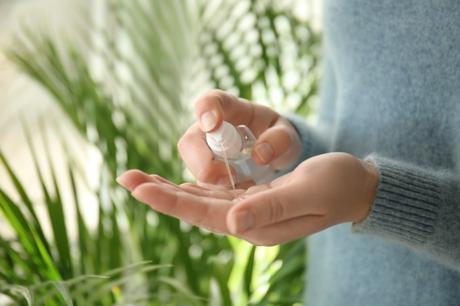Good hand hygiene has always been important, but it's something that we're more aware of now than ever before. Washing your hands regularly with soap and water is usually the best bet, but there are times when isn't possible to do so, or when it doesn't make sense. Enter hand sanitizer. As anyone who uses it regularly can tell you, though, not all products are created equal, and it's important to choose wisely when it comes to something that you'll be using so frequently. Many would state that organic hand sanitizers are by far the superior option. If you're looking for a great place to start, you should try Moxe hand sanitizers
The following are five great benefits to using organic hand sanitizer:
Though this point is true for almost all hand sanitizers, it bears repeating. If soap and water are not readily available, a hand sanitizer with at least 60% alcohol is usually a dependable solution.
Many businesses have seen the wisdom in putting out hand sanitizer, but at some point, you'll find yourself in an establishment that hasn't thought to do so. For this reason, it's a good idea to have your own with you, or to keep it in the car; this is a great way to make sure that you're always prepared, and most hand sanitizers on the market facilitate it.
Frequent hand washing can be tough on your skin, but replacing this with regular use of a standard hand sanitizer can be even worse. The same thing that makes it work (the alcohol) is often the very cause of its problems. The alcohol concentration that hand sanitizer requires to work effectively may dry out your hands, and can even lead to the skin cracking. Cracked skin leaves you more vulnerable to bacterial infection. Many organic hand sanitizers, however, contain a range of ingredients focused on preventing this issue by keeping your skin from drying out.

- Avoid unnecessary ingredients
With a typical hand sanitizer, it can be tough to understand what the ingredients listed on the label actually are; often, they contain a range of chemicals whose names the general public simply haven't heard before. If you choose an organic product, you can rest assured that you'll know exactly what you're relying on to keep yourself healthy; at the very least, you'll know that you aren't applying anything potentially toxic to your skin.
While this may sound less important than the other points, don't underestimate how much an unpleasant smell can discourage you from keeping up with your hygiene habits. With an organic hand sanitizer, you can avoid the off-putting smell so characteristic of many on-shelf products, and be more encouraged to use it regularly.
- Some essential oils have antimicrobial properties
Organic hand sanitizers with essential oils can offer additional protection against bacteria. A recent study showed that thyme and clove have antimicrobial potential, and tea tree oil is well-known for its ability to kill germs. With clear ingredient lists, it should be easy to see whether your hand sanitizer is giving you that extra protection or not; it also makes it easier to find products that do, and to avoid wasting money on options that may not be as efficient.
Conclusion
It's important to keep in mind that hand sanitizer does have limitations. For example, soap and water, as the CDC recommends, is more effective against certain pathogens, such as norovirus, and hand sanitizers generally can't remove heavy metals or pesticides. However, for the reasons mentioned above and more, an organic hand sanitizer can be an ideal option when you're on the go and don't have access to soap and water. If you're stuck as to which product you should buy, make sure to check the list of ingredients and to gauge which hand sanitizer can offer you the most benefits.

